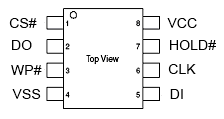The SPI bootloader was bad, which prevented booting. You can use a female to male jumper cable, with female end plugged in the ground on 40-pin. Then with one hand hold the male end touching the CLK pin to temporarily disable SPI boot. Use your other hand to connect the power, and you should be able to boot from microSD. Disconnect the connection when you see U-Boot is launched, so the Linux can later detect the SPI flash.
Here is an image helping you to find the CLK pin:

From the back of the PCB it looked like this:
==========================
40-pin header
==========================
5 4
short this-> 6 3
7 2
8 1
Flash <- this is printed on the PCB
Once you get into the system you can clear the broken SPI bootloader.
Right now the code needs some work so I’ll not provide any more private build.
